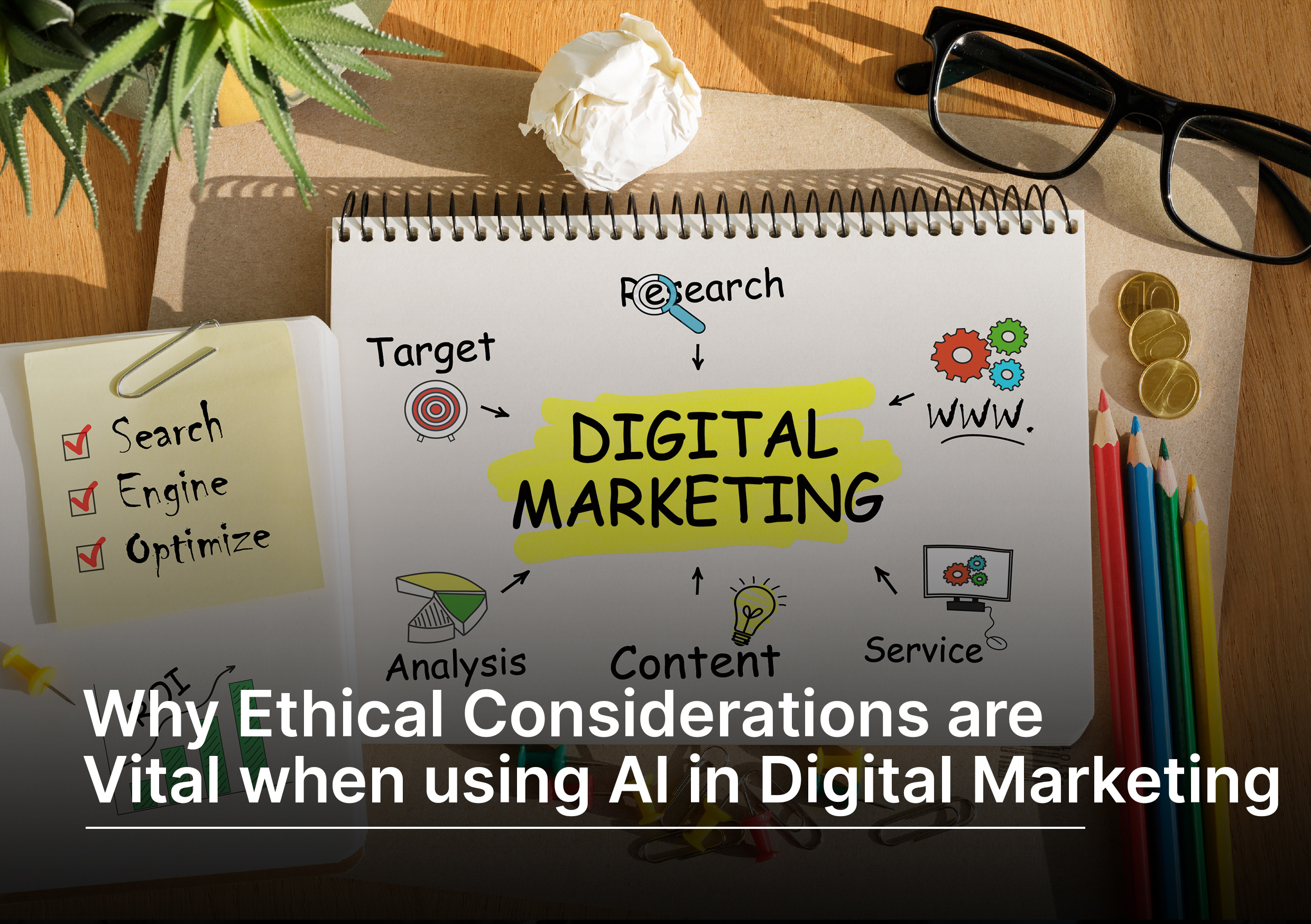With the rise of AI, the marketing industry is now equipped with incredible opportunities to streamline processes and boost their marketing efforts. However, it also poses several ethical considerations that must be addressed.
Last year, a trio of artists filed a lawsuit against Stability AI, the company behind MidJourney and Stable Fusion, two AI image generators. One of such artists is Kelly McKernan, who claims his name was being utilized more frequently in A.I-driven image generation. He noticed that users had included his name over twelve thousand times in public prompts, resulting in images which were strikingly similar to his works. Also, a list released by Metaverse Post suggested “Kelly McKernan” is a term used to feed an AI generator to create “Lord of the Rings”-style art.
One of the major concerns AI poses is the infringement of intellectual property and copyrights. The unauthorized use of the artists’ works could be considered a violation of their rights. These artists never consented to have their artworks included in AI databases and were never compensated, despite these companies charging for the use of their tools. Also, their influence was never credited when AI images were produced using their work.
Artists should always have a choice over how their works are being utilized, and they should be credited and compensated when their works are used in AI-generated content. To address this concern, companies developing AI tools should implement methods to ensure that copyrighted works are not included in their databases without the artists’ permission. Also, they must establish clear guidelines and policies to protect artists’ rights and compensate these artists when their works are used.
Also, AI tools can now be used to gather a vast amount of personal data, including browsing history and social media activity, which can be used to target consumers with personalized ads. This raises some privacy concerns because consumers have a right to know how their data is being gathered, stored and utilized, and they should be able to opt out of having their data used. These AI tools, however, do not provide consumers with this level of transparency.
To address these concerns, marketers must prioritize consent and transparency when collecting and utilizing personal data. They must also provide clear privacy terms and policies of service, explaining how the data will be used and allowing users to opt out of data collection for targeted advertising purposes. They should also ensure that data is securely stored and protected from unauthorized access, as well as take measures to comply with relevant data protection regulations.
Lastly, with AI’s ability to collect such large amounts of data, companies can then use the data to manipulate and deceive consumers for commercial gain. These companies can design personalized ads created by AI to exploit consumers’ emotions and vulnerabilities. For example, they could target an ad specifically towards people who are feeling lonely or insecure.
This type of manipulation is unethical because consumers should not be tricked or coerced into buying products or services they might not need or want. Marketers must exercise responsibility and ensure that their AI-driven campaigns are honest, transparent and respect individuals’ autonomy. The campaigns should also be relevant, informative and avoid crossing ethical boundaries by preying on vulnerabilities or emotions without the consumer’s knowledge.
As professionals in the field, we must ensure that we use AI responsibly and ethically. So, where should we draw the line when using AI in our marketing efforts? To ensure the responsible and ethical use of AI in marketing, companies should take several things into account. They should respect copyright and intellectual property rights while providing fair compensation when AI tools utilize artists’ works. They should also address privacy concerns through transparency, consent, and secure data practices. Marketers should be mindful of potential manipulation and exploitation, ensuring personalized ads do not cross ethical boundaries.

